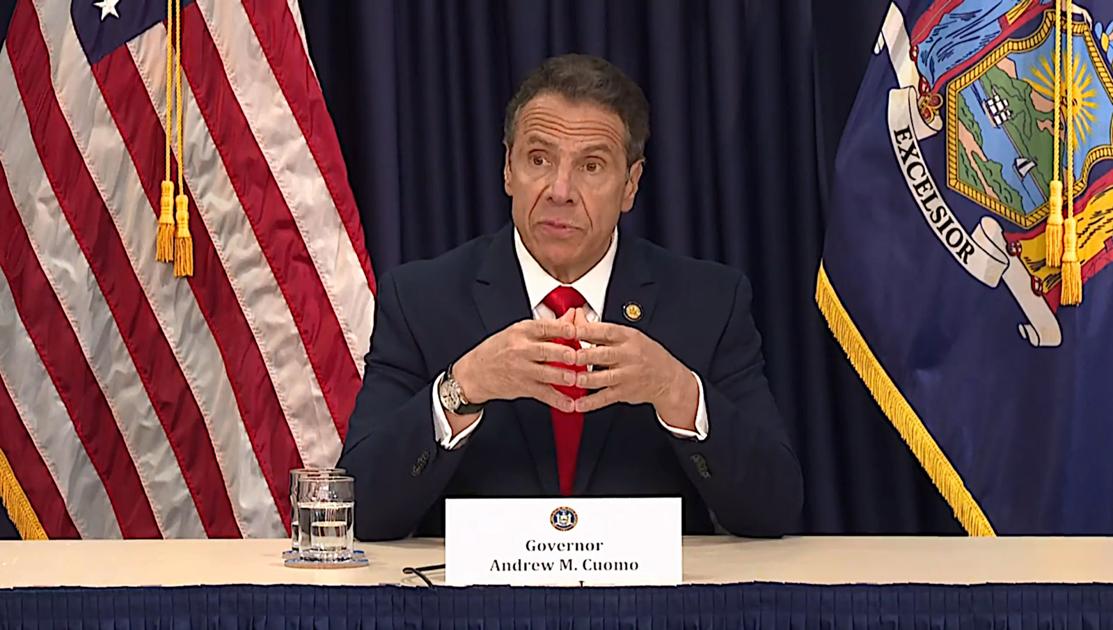

Data from Gallup shows that charitable giving today is at a 19-year low. One reason donations to some nonprofits may be declining is fear of social and governmental targeting. In today’s polarizing environment, it’s not surprising that donors are concerned.
Making fears into reality, some states have decided to attack charitable giving and require dangerous and unconstitutional disclosures that threaten Americans’ ability to join the causes and give to the charities of our choice without fear of government intimidation or public reprisal.
The long-held right to anonymous giving and membership, protected by the First Amendment, is under assault.
One of the boldest attacks on the right to privacy has been in New York, where Gov. Andrew Cuomo’s proposed budget would have forced nonprofits to disclose the names of individual supporters to the state. A government agency would then post this personal information on the internet: name, address, and amount donated.
Fortunately, the language exposing nonprofit donors was removed from the bill after groups like Advocates for Children of New York, The Afrikan Poetry Theatre, Inc., the Asian American Legal Defense and Education Fund, and local Habitat for Humanity and YMCA groups spoke out.
A joint letter signed by more than 100 New York nonprofits condemned the governor’s far-reaching invasion of privacy, explaining that it “would unwisely and unconstitutionally violate the longstanding confidentiality of donors” and “would discourage charitable giving by potential donors who prefer to remain anonymous, whether out of modesty, a religious imperative, a wish for privacy, or fear of retaliation or ostracism.” The letter also pointed out that New York’s previous attempts at forcing donor disclosure have already been ruled unconstitutional by a federal district court.
Things aren’t much better in neighboring New Jersey, which is also being sued over an unconstitutionally broad nonprofit disclosure law. A federal district court prevented the law from going into effect, calling it “facially unconstitutional.” The ACLU of New Jersey praised the decision, observing that “the Supreme Court has said time and again that compulsory exposure of organizations’ supporters threatens free association, privacy, and other key rights.” Still, this has not stopped the Attorney General of New Jersey from issuing a rule requiring certain nonprofits to release the names and addresses of supporters who give more than $5,000 each.
In California, the state’s attorney general has been demanding that 501(c)(3) charities and other nonprofits turn over their donor lists. The policy was struck down in federal district court, but the 9th Circuit Court of Appeals overturned that ruling and upheld the AG’s donor disclosure policies. The case is being looked at by the U.S. Supreme Court, with the U.S. Solicitor General having been invited to weigh in.
By contrast, some states are moving in the opposite direction, protecting the individual right to freely give to any charity. Last year, Mississippi became the first state to proactively protect the personal information of supporters who give to any nonprofit, whether it be a soup kitchen or a teacher’s union. The law ensures that politicians and bureaucrats can’t go digging through the donor, membership, and volunteer lists of nonprofit organizations or release this sort of information on the internet.
Following Mississippi’s lead, Oklahoma, Utah and West Virginia also have passed laws protecting the personal privacy of nonprofit supporters. Other states were considering similar bills prior to the COVID-19 outbreak and may still enact these necessary protections as legislative business resumes.
It is extremely troubling to watch states like New York, New Jersey, and California brazenly attack the rights of Americans. As our nation becomes more polarized, it is increasingly important that we protect the critical right to give to the causes individuals care about without fear of government retribution.
Philanthropic giving supports many important social services and community needs across the country and legislation that discourages it will only wreak havoc on important nonprofit services Americans have come to rely on. States should follow the lead of Louisiana, Mississippi, Oklahoma, Utah and West Virginia and protect the right of Americans to give to causes they believe in.
* This article was originally published here
HELP STOP THE SPREAD OF FAKE NEWS!
SHARE our articles and like our Facebook page and follow us on Twitter!



0 Comments